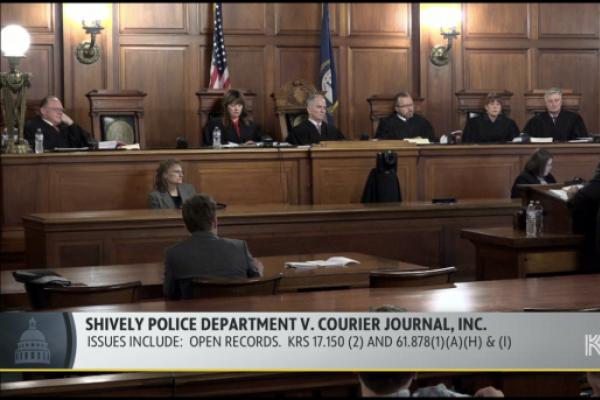
Question of the day: "A Facebook friend raises a critical issue for Kentucky's open records law.
He asks if a city attorney correctly defended the city's denial of his request for the mayor's private cellphone communications concerning a particular public issue.
The city attorney distinguished between communications by public officials about public business conducted on personal cellphones and those conducted on publicly issued cellphones, explaining:
"We do not periodically collect cell phones to review records. Text messages that are public records are subject to retention similar to other public records.
"Based upon prior attorney general opinion, text messages from a personal cell phone where no public funds were used to pay for the phone are not public records."
âSo does the Kentucky Open Records Act apply to public officials' communications about public business on privately owned devices or personal email accountsâ
Under current — and we sincerely hope future — law, the Open Records Act applies to all such communications, regardless of whether they occur on publicly issued or private cellphones.
The open records decision to which the city attorney alludes, 15-ORD-226, was expressly modified by the Kentucky Attorney General in 19-ORD-206.
https://ag.ky.gov/Priorities/Government-Transparency/orom/2015/15ORD226…
https://ag.ky.gov/Priorities/Government-Transparency/orom/2019/19-ORD-2…
Referencing an intervening open records decision, the Attorney General observed at footnote 5:
"The facts presented in 19-ORD-011 established that a city council member had used his 'private email account with the intent to shield the communications from the public.' Id. In holding that responsive e-mails in his private account were public records, and therefore subject to disclosure unless a statutory exception applied, this office emphasized, 'A record that is "used' by a public agency is a public record of that agency under the definition of the term "public record" found at KRS 61.870(2).' 19-ORD-011, p. 4 (citing 12-ORD-178). The instant appeal presents no basis to depart from this reasoning. Insofar as 15-ORD-226 suggests otherwise, that decision is hereby modified."
In recent decisions involving the JPAY system employed in correctional facilities, the Attorney General has determined that although most emails generated by inmates in the privately contracted system are personal communications not subject to the open records law, if such emails are "sent from an inmate to Complex staff [they] could be 'used' by the Complex, either to address an issue raised by the inmate or for some other administrative purpose. That 'use' would bring those specific emails within the statutory definition of a public record." 20-ORD-109.
https://ag.ky.gov/Priorities/Government-Transparency/orom/2020/20-ORD-1…
Similarly, if such emails are "prepared' by facility staff in communicating with inmates in the discharge of their official duties, they fall within the broad parameters of the definition of "public record" found at KRS 61.870(1):
All documentation, regardless of physical form or characteristics, which is "prepared, owned, used, in the possession of or retained by a public agency."
As an elected public officer, the mayor is a "public agency" as defined at KRS 61.870(1)(a) — defining that term as "Every state or local government officer." He or she is responsible for maintaining all communications related to public office per the applicable records retention schedules. To be clear, those schedules recognize no distinction between communications on public devices or private devices. It is the content of the communications — not the method by which they are transmitted — that determine their status as public records.
If the city does not provide the mayor with a public cellphone, the mayor should be assigned an public email address on which to conduct all public business. Failing this, the mayor should forward any communications relating to agency business that are received on a private device to a public agency server. At a bare minimum, the mayor must retain copies of all public agency related communications and make them available to the agency's records custodian in the event of an open records request that includes them.
Tha fact that the city has opted out of these three records management best practices options does not relieve the mayor of the duty to review responsive emails stored on his or her private device and forward them to the records custodian for review and production (if nonexempt).
It appears that the city encourages — or at least permits — public officers, including the mayor, to communicate with the public — in his or her official capacity — on a private cellphone.
Any suggestion that these communications are not either prepared or used — as described in the open records decisions cited above — does serious violence to the laws protecting the public's right to know. Public officers have a statutorily protected right to nondisclosure of "Communications of a purely personal nature unrelated to any governmental function." KRS 61.878(1)(p).
The rest is fair game.
The city attorney's position is based on a false (and outdated) legal premise, misconstrues records retention requirements, and undermines both the spirit and the letter of the open records law.
FYI: An appeal is currently pending in the Office of the Attorney General that involves this issue. A decision will be released on July 19.



